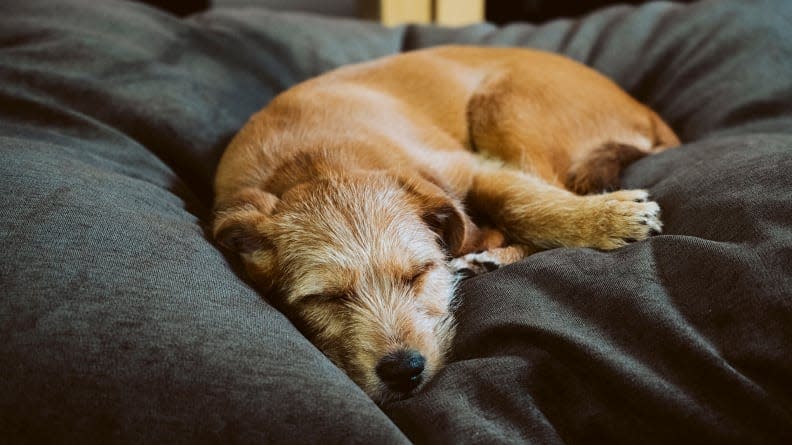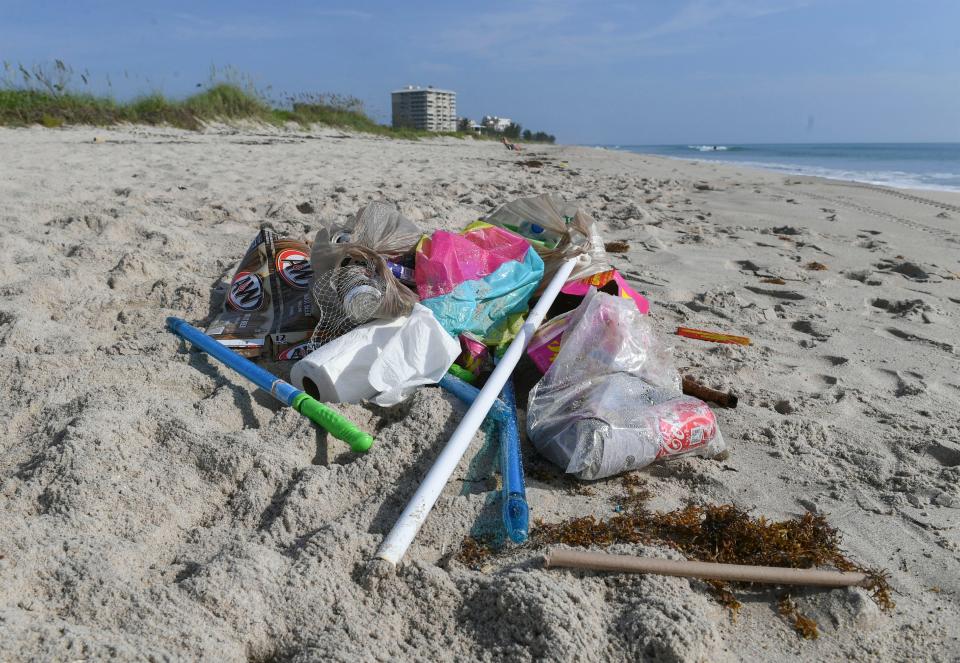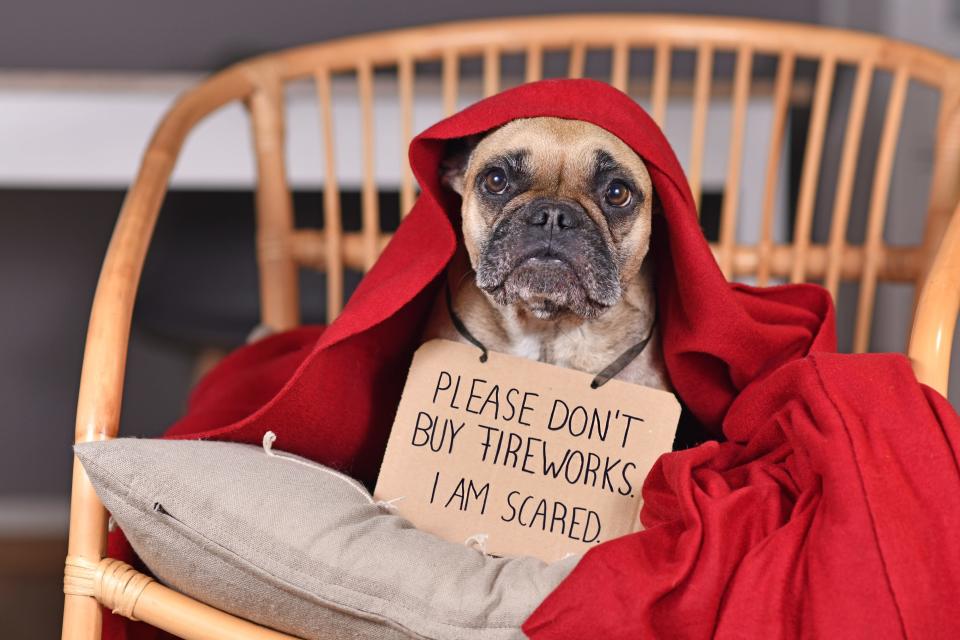Boom! Yipe! How to protect your dog from freaking out over New Year's fireworks
Break out the fireworks for New Year's Eve! But remember that for your dog, this could be one of the most terrifying nights of the year.
Lots of weird stuff happening. Lots of new people at the party. Unfamiliar smells. But the worst are the massive booms and deafening cracks turning your neighborhood into a brilliantly colored combat zone for hours at a time.
Many dogs find fireworks deeply distressful. Those crowd-pleasing explosions may trigger fight-or-flight behavior in your pet such as panic, howling, barking, shaking, anxiety attacks, destructive or aggressive behavior or just running away.
Here's how to make your dog's holiday a little less stressful.
Before the fireworks: Get your dog ready
First off, make sure your dog (and cat) have well-fitting collars with updated contact ID tags and vaccine information. Get them microchipped if they're not and, if they are, make sure the microchip information is up to date. Just in case, take new pictures of them.
You can try desensitizing them by playing sounds of fireworks softly while petting them or giving them treats they like. Increase the noise gradually. But keep in mind this doesn't always work, and even if it does it can take a very long time. If it's a persistent issue, consider hiring a trainer to help with behavioral therapy or counter-conditioning.
Get a thundershirt, thunder coat or anxiety vest — basically a heavy, snug-fitting garment — that you can put on them when the explosions start. Some dogs are calmed by the gentle pressure on their bodies.

Create a quiet space away from windows. Put your dog's bed there, or their crate if you use one and that's where they feel comfortable. Add some familiar toys and treats.
Talk to your veterinarian to see if anti-anxiety medicine is recommended. If so, give your dog a dose beforehand to see how they respond. Never share the medication with other animals or give yours more than the recommended amount, and keep a close eye on them after they've been dosed.
Take your dog out for a long walk or let them play at a dog park to help wear them out before the evening.
During the fireworks: Keep your dog calm
Don't take your dog to fireworks shows or someone else's parties. Leave them at home or with a trusted friend.
If you're firing off your own party, keep the dog inside in a closed room so they won't bolt out an open door and ask your guests to help keep an eye out.
Put a thundershirt on your dog, if you have one. If your vet decides medication is appropriate, administer it.
Move your dog to the safe space you created. If that's not possible, close the blinds or shades.
Mask the sounds with the TV, a loud fan or some music. Studies have shown that soft rock and reggae or classical music with slow tempos, especially solo piano music, seems the most effective. There's even a YouTube channel called "Through a Dog's Ear" that plays calming music for canines.
Redirect your dog's attention with a favorite chew toy, play with them or try teaching them a new trick, and reward them with praise or a treat if they respond to you. Try a Kong or a food puzzle to keep them engaged.
Learn to recognize your dog's anxiety: ears back, tails down, eyes wide, trembling or shaking, lip-licking, yawning, panting, pacing, whining, barking or howling, attempts to hide under furniture or escape, attempts to press close to owners and follow them from room to room can all be signs your dog needs comforting.
Comfort your dog. "It’s important to remain calm and use a soothing, even tone," said Jenn Stanley, certified behavior consultant and professional dog trainer, and co-owner of Awesome Pawsabilities Pet Training & Behavior Consultations. "Petting them can be comforting — long, slow, firm strokes along the length of their body are typically very soothing.”
Keep your furry friends safe: Chewy experts share top tips to keep your pets safe during the holidays, travel
After the fireworks: Don't let your dog near fireworks debris

Don't let your dog outside until you've checked your yard for fireworks debris and don't let them go attended near any other yards or on the beach on New Year's Day.
It is a very bad idea to let your dog eat fireworks even after they've been used, and some may try. According to the ASPCA Poison Control Center, the most common problems from snarfing down some fireworks are vomiting and diarrhea, which is bad enough, but some contain chemicals that can be corrosive to the lining of the digestive tract and cause bloody vomiting and diarrhea, serious dehydration and secondary infections. They're also choking hazards.
Fireworks with chlorate salts can oxidize red blood cells, which can lead to life-threatening conditions. If your dog is lethargic with brown, gray or blue-colored gums or breathing rapidly with a fast heart rate, contact your vet immediately. Symptoms can develop up to 10 hours after ingestion, the ASPCA said.
"Many commercially used fireworks and even some sparklers contain barium which can cause animals to become extremely weak and uncoordinated," the ASPCA said, and they can cause heart problems. This type is the most dangerous after they've been used.
Why are dogs scared of fireworks?

Dogs' ears are different. A dog can hear, on average, about 4-5 times as far as a human can, and while we can hear lower frequencies than dogs, up to 20,000 Hz or so, dogs can hear sounds as high as 47,000 to 65,000 Hz. They also can hear sounds too soft for us to detect. It's no wonder they don't like crashing booms and sudden cracks of fireworks at night. Plus their sensitive noses may react to the smoke and the used-firework smell.
This article originally appeared on The Daytona Beach News-Journal: New Year's Eve fireworks can terrify your dog: How to keep them calm

